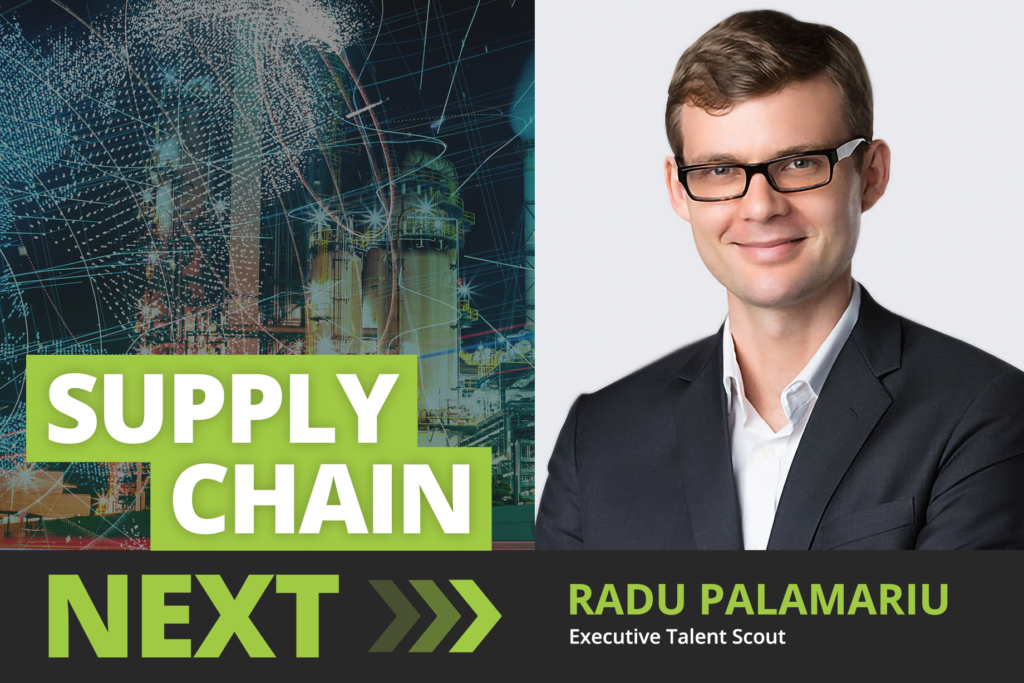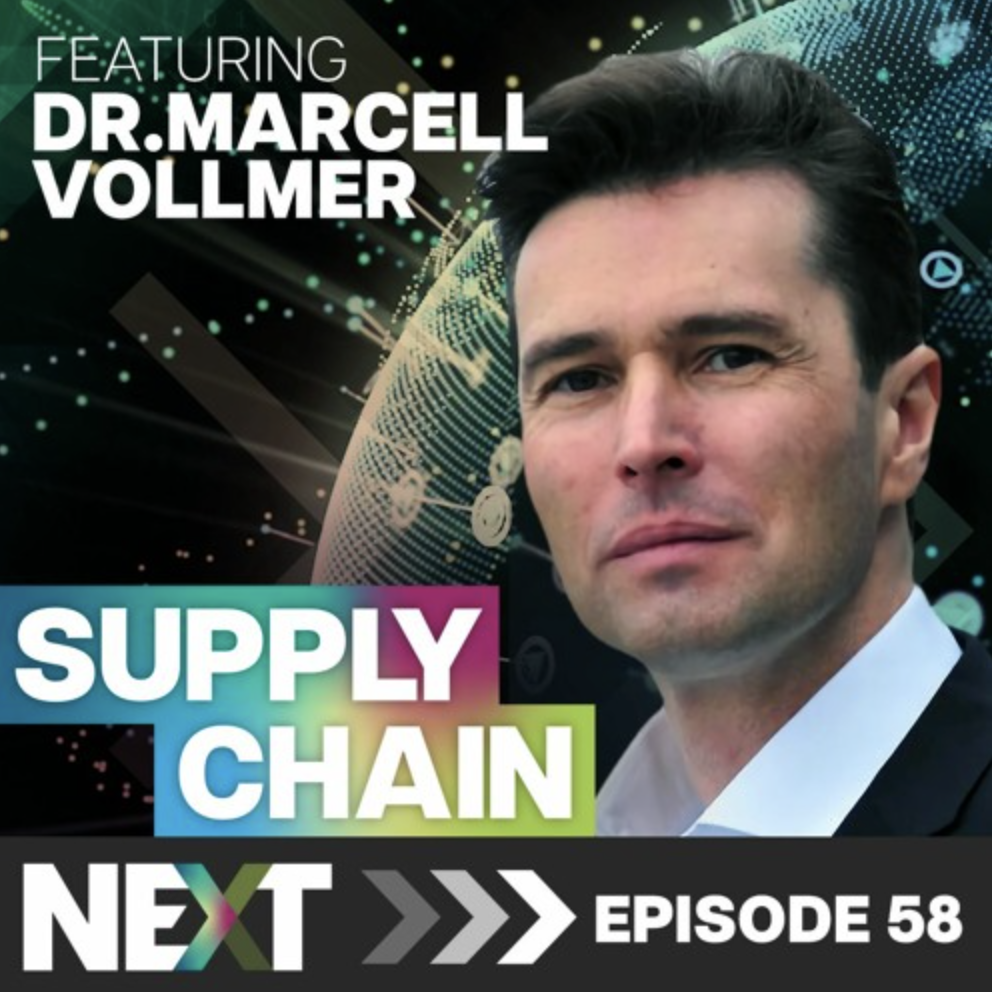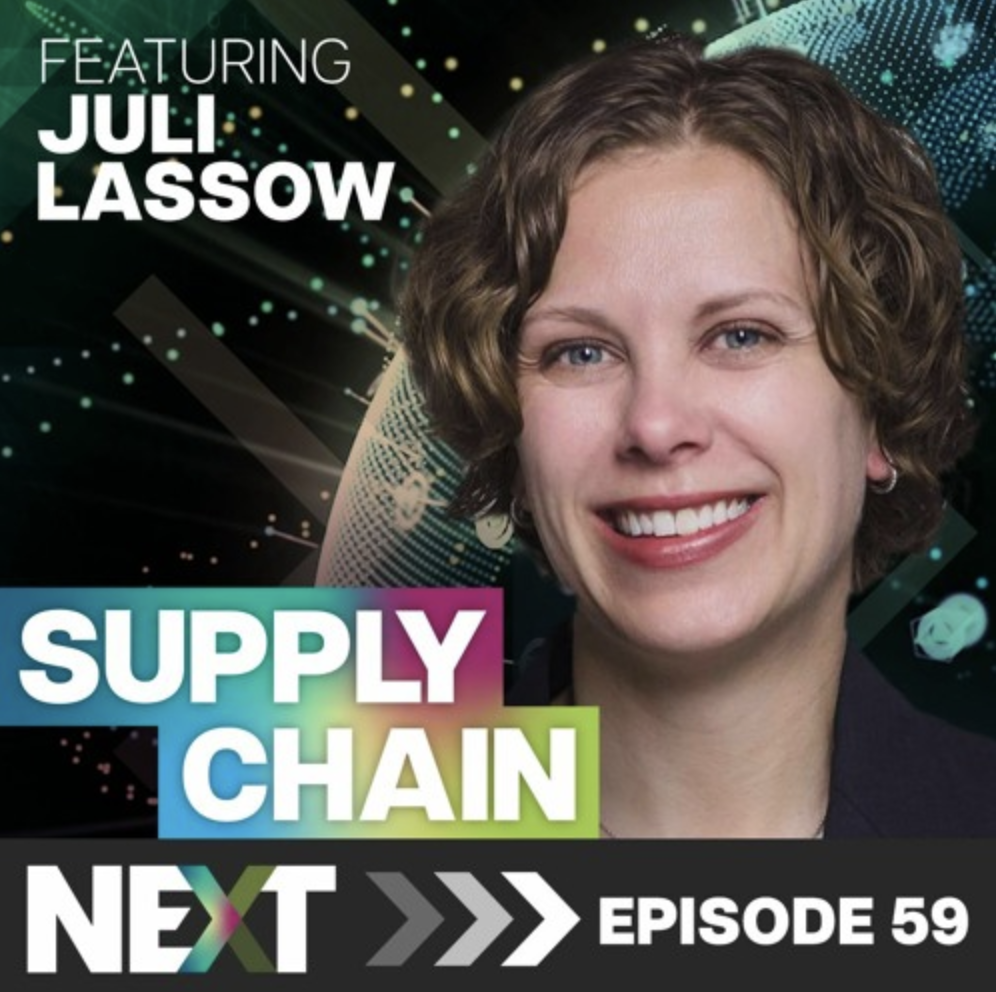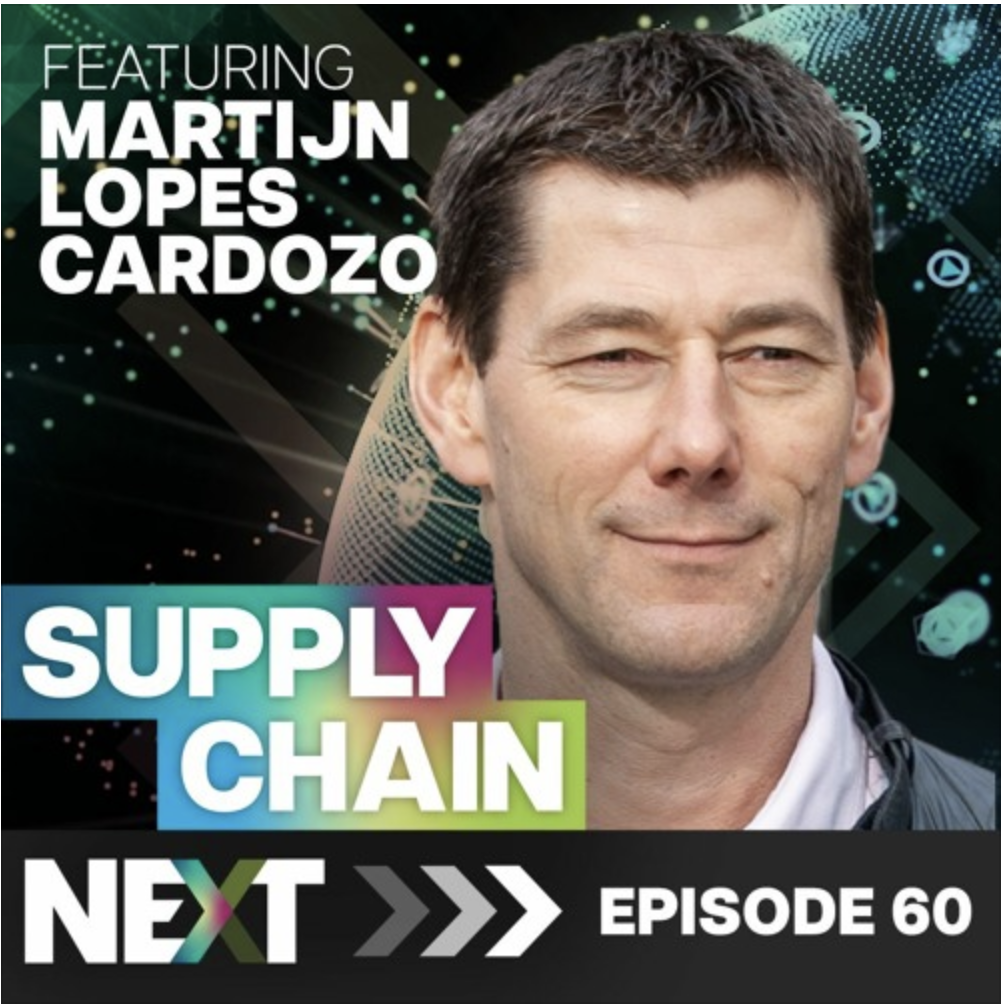Episode 14
Podcast: Executive Talent Scout Radu Palamariu on Supply Chain Leadership Skills
Radu Palamariu has been helping global organizations find the right leaders since 2011. Currently he is the practice head for global logistics & supply chain at Alcott Global, and leads its team in Asia-Pacific as Managing Director.
In this episode of Supply Chain Next, Radu speaks with host Richard Donaldson about how supply chain is changing, and the skills that supply chain leaders need to win top roles.

Highlights from the Conversation
Reflecting back on your experience, have any patterns or insights emerged?
- People are at the heart of companies and will make or break its success.
- I didn’t start out in supply chain, but I quickly learned that it connects and runs the world.
- John Gattorna once said that supply chain is the central nervous system of the organization. While I’m a generalist, I’ve come to appreciate that it’s this approach that’s helped me see how all the different pieces interconnect.
What has changed in the last few years in supply chain?
- In some ways I think COVID-19 is a blessing in disguise for supply chain. Now organizations recognize how important it is. For example, an Apple iPhone could be copied, but to take it to market you’d have to duplicate the entire ecosystem that creates and sells it.
- The rising importance of supply chain links to organizations getting serious about supply chain.
- We are seeing more and more organizations with a Chief Supply Chain Officer role. Years ago, supply chain was much more peripheral, but now they’ll have that seat on the board.
- About 30% of organizations have a true BOD seat for supply chain, so there’s still work to do, but it is changing.
- A big ‘Aha’ moment for us at Alcott was that virtual conferences really can work. Our virtual Supply Chain Summit in July had over 5,500 participants, and people participated in the virtual networking.
- Virtual conferences won’t completely replace face-to-face, but they’re here to stay. They save so much hassle, and people really get a lot of value out of them. They love being able to listen to content at their own pace. That’s why we made the content available for two weeks after the event.
What are the most important skills for up and coming supply chain leaders?
- At our recent Supply Chain Summit, our leadership panel members all agreed that the biggest missing piece right now for supply chain executives and professionals is communication skills. This includes presentation skills and storytelling ability, to help get your message across. This is where we need to improve the most.
- Another big one is technology. Day to day, technology is playing a larger role in everything we do. It’s the same in supply chain.
- But it’s important to remember that tech is an enabler, not a passport. You must have a clear purpose in mind and know what you’re trying to achieve. Tech enables this vision.
- Another essential is data skills, including data science and analytics. More and more these are being used to understand what’s going on in supply chain. There are still many companies outside the Fortune 500 who don’t always have accurate digital data.
- Now executives also have to have that experience with digital transformation projects. It’s a must now.
- Both executives and high-level professionals in supply chain must be leaders. They should stay on top of everything that’s going on, and know how to build teams, work with teams, and get the best out of them.
- It’s also important to have lived on two or three different continents for global roles. Ten or twelve years ago you could have gotten away without this, but not now.
What types of people are companies looking for in supply chain executives and professionals?
- The million-dollar question is ‘what are you trying to achieve?’. If your company wants to take a quantum leap forward, that will require outside the box thinking. Some very specific roles, however, will require very specific experience.
- I suggest to clients that want to go to the next level that you need someone who thinks a bit differently. So we often look in different industries for people who have experience in supply chain and then went on to do consulting. Now they can come back to industry with some great experience. For example, for one tech platform, we brought in a new CIO from the gaming industry who had the right skills.
- But even when you need someone who is forward thinking, they will also have to have the fundamentals. For a supply chain role, you can’t just parachute someone in from finance.
- One client with over $25B in revenue needed to consolidate three operations, so in this case we needed someone who had done that before.
- It’s really case by case. But there’s always an element of risk, so it takes courage to bring in someone from the outside.
What does the supply chain organization look like five years from now? For example, will there be more supply chain leaders taking over companies, like Apple’s Tim Cook?
- Tim Cook is an amazing optimizer. He’s possibly done better in terms of value creation, but he’s not the innovator Steve Jobs was.
- If we operate on the assumption that “supply chain is the central nervous system of the organization”, then all the prerequisites are there. Supply chain people have the right data and tools to create massive value. They can be strategic, long-term leaders.
- But sales people often get these roles because they know how to sell themselves. Call it charisma.
- Supply chain people often say, “In supply chain we’re doers! We get s**t done; we don’t brag about it”. But if you don’t tell people what you’re doing they won’t know.
- If you want that executive position, you need to get comfortable in the limelight, and good at storytelling. Focus on the achievements and benefits to the company, not on what’s going on with your trucks.
Have you begun to see anything in supply chain investment?
- There’s definitely been an increase. I don’t have the data in from of me, but for logistics alone I’d say about threefold increase. It’s easy to see why when there’s so much room for improvement. For example, in shipping, when you use actual container ships you have a bill of lading that circulates when you go into or out of a port— that’s still on paper. People are still using faxes. It’s enough to make you fall out of your chair!
- There’s room for disruption and for building successful businesses through disruption. Amazon, at the end of the day, is a big supply chain disruptor.
- VCs and private equity are seeing the opportunities, whether they’re looking at consolidating businesses or buying businesses. We’ve seen some major investments in warehousing real estate because they see the potential in e-commerce, and they’re consolidating locations because they know micro-fulfillment options will be the next thing needed.
- They’re investing in tools for optimizing supply chains, logistics, and providing data analytics. We’ll see whether it’s another huge opportunity like trade finance; it’s somewhat like fintech, but it will be related to enabling trade and transactions.
- We work with private equity funds that look at investment, but there are also a number of corporations that have set up their own innovation labs, and there are incubators like Plug n’ Play putting corporations together with startups and making magic happen.
- For me it’s clear that there’s a lot of interest, and it’s more probable that you’ll make a dent (and make money) in supply chain more than if you were trying to create the next Facebook.
Listen to the full conversation on SoundCloud >
Read more about what’s happening in supply chain investment >
More About Radu Palamariu
Radu and his co-founders currently lead Alcott Global, which provides executive search, business transformation consulting, and business to business networking. Alcott works with global enterprises in e-commerce, supply chain, logistics, and tech in transportation, or as Radu says, “any company that makes things or moves things”.
Alcott has a highly successful podcast, Leaders in Supply Chain and Logistics. They have also started a popular conference series, the Supply Chain Summit. They are currently looking for more ways to bring the supply chain community together.
An entrepreneur at heart, Radu stumbled into supply chain but soon became deeply immersed. His journey began in his home country of Romania, when he decided that he wanted to live and work abroad. He was offered a position in management consulting in Singapore with Self Leadership International, a boutique consultancy for oil and gas, shipping/logistics, and engineering multinationals. He subsequently worked for Oracle and Monster, but later took on take on several high-level roles with Morgan Philips Executive Search.
Follow Radu Palamariu on LinedIn >
More Episodes
You can listen to our audio tracks and read highlights for each episode below.
We’ve also started publishing video episodes on our YouTube channel.
058 – Dr Marcell Vollmer – Tech in Supply Chain, and the Sustainability Shift
Supply Chain Next · 058 – Dr Marcell Vollmer – Tech in Supply Chain, and the Sustainability Shift Meet Dr. Marcell Vollmer Dr. Marcell Vollmer, a renowned expert in the fields of digitalization, innovation, and sustainability. Marcell is a sought-after speaker and author that has dedicated his career to helping companies and individuals navigate the rapidly…
059 – Juli Lassow – Revolutionizing Retail, Sustainable Strategies, & the Future of Partnerships
Supply Chain Next · 059 – Juli Lassow – Revolutionizing Retail, Sustainable Strategies, & the Future of Partnerships Juli Lassow ,founder of JHL Solutions Meet Juli Lassow Juli Lassow, an accomplished retail professional, speaker, writer, and sustainability advocate, is the founder of JHL Solutions, a consultancy focused on creating outstanding private-label partnerships. With a deep…
060 – Martijn Lopes Cardozo – Circular Supply Chain
Supply Chain Next · 060 – Martijn Lopes Cardozo – Circular Supply Chain Martijn Lopes Cardozo, CEO at Circle Economy Meet Martijn Lopes Cardozo Martijn, a seasoned entrepreneur, has an impressive track record of establishing prosperous ventures within the realms of software, mobile, and digital media in California. Upon returning to the Netherlands, he…



